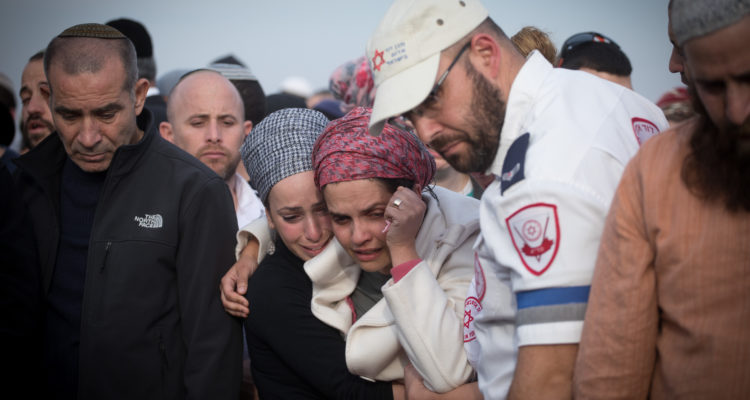Following a request from Yael Shevach, whose husband was killed in a drive-by shooting, Defense Minister Liberman directed his ministry to examine recognition for the Gilad Farm community in Samaria.
By: Margot Dudkevitch
Yael Shevach, whose husband Rabbi Raziel Shevach was murdered in the drive by shooting terrorist attack on Tuesday night, called on Prime Minister Benjamin Netanyahu to legalize the Gilad Farm community in Samaria, the couple’s home.
In a statement released to the media Thursday, she impressed the need for residents living on the outpost to be allowed to reside there as proud Jews, and not have to fight for every stretch of land, being made to feel as “thieves in the night.”
The mother of six, who lost her husband after terrorists fired some 22 bullets at his car as he was returning to his home, said he was buried at the outpost “to leave a stake that would be impossible to uproot again.” Her comments come amid demands from Jewish residents living in Judea and Samaria that the government legalize the outpost in response to the attack, saying it is the best deterrence against further attacks.
The settlement was established in 2002 on land purchased by landowner Moshe Zar, in memory of his son Gilad, who was murdered a year earlier in a terrorist attack. At the time he vowed he would establish six communities in his son’s memory, one for each Hebrew letter of his name. Speaking to Arutz Sheva Israel National News, Zar said he knew Rabbi Shevach well, and that he taught one of his grandchildren. “How do I explain to a 7 year-old that his teacher was wantonly murdered 300 meters from where his uncle Gilad was killed and 300 meters from his own house?”
On Wednesday, Defense Minister Avigdor Liberman said he had instructed officials to examine the possibility of legally recognizing the outpost enabling it to become a permanent community in Judea and Samaria.





